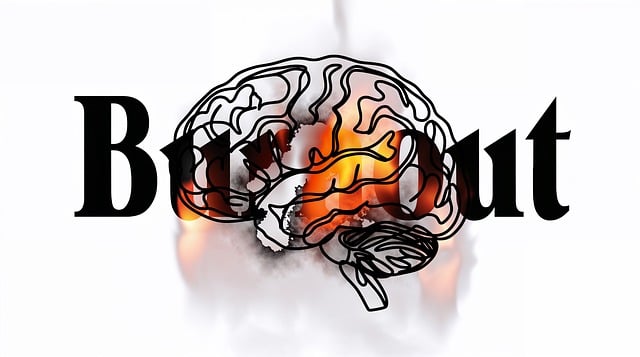In Therapy for Adults Christian Counseling, crisis intervention offers immediate support and hope to clients in severe distress, addressing unique personal beliefs, experiences, and cultural contexts. This approach combines spiritual practices with evidence-based techniques like Mind Over Matter principles, mindfulness, and cognitive reframing to stabilize individuals and prevent long-term burnout. Post-crisis support ensures ongoing emotional processing, insights, and effective coping mechanisms for improved mental health maintenance.
“In times of crisis, effective intervention strategies are vital for guiding individuals toward healing and stability. This article offers a comprehensive Christian counseling perspective on managing crises, focusing on therapy for adults. We explore key steps in assessing and stabilizing clients, implementing evidence-based interventions tailored to their faith, and providing post-crisis support for long-term wellbeing. Discover how Christian counseling principles enhance traditional crisis intervention techniques.”
- Understanding Crisis Intervention: A Christian Counseling Perspective
- Assessing and Stabilizing the Client: Key Steps in Therapy for Adults
- Implementing Effective Interventions: Strategies from Christian Counseling
- Post-Crisis Support and Follow-Up Care: Ensuring Long-Term Wellbeing
Understanding Crisis Intervention: A Christian Counseling Perspective

In the realm of mental health support, crisis intervention offers a critical and time-sensitive approach to aid individuals facing severe or acute distress. From a Christian counseling perspective, this strategy focuses on providing immediate assistance while fostering hope and resilience in clients. The primary goal is to help them navigate through their present crisis, offering guidance and tools to manage the situation effectively. This therapeutic method recognizes that every individual’s journey is unique, shaped by personal beliefs, experiences, and cultural contexts, thereby tailoring interventions to meet these specific needs.
Christian counseling emphasizes the importance of faith and spiritual connections in therapy for adults. It believes that a higher power can play a pivotal role in building mental wellness and resilience. By integrating spiritual practices into crisis intervention, counselors create a safe space for clients to explore their beliefs, cope with stress, and develop meaningful coping strategies. This holistic approach not only addresses the present crisis but also equips individuals with long-term burnout prevention strategies, particularly relevant for healthcare providers who often face high-stress environments.
Assessing and Stabilizing the Client: Key Steps in Therapy for Adults

In the realm of therapy for adults, assessing and stabilizing a client during a crisis is a meticulous process that forms the crux of effective Christian counseling. The initial steps involve an empathetic evaluation to understand the individual’s emotional state and triggers. This includes active listening, where counselors utilize open-ended questions to encourage clients to express their feelings and concerns freely. By creating a safe space, counselors can then help clients identify coping mechanisms and develop strategies for managing immediate distress, focusing on both physical and psychological needs.
Stabilization techniques in therapy for adults often involve teaching Mind Over Matter principles to foster resilience. This includes mood management skills, such as deep breathing exercises, mindfulness practices, and cognitive reframing, which empower individuals to challenge negative thought patterns. Crisis intervention guidance is tailored to meet the unique needs of each client, combining traditional therapeutic approaches with spiritual support to offer comprehensive care that addresses both the symptoms and underlying causes of distress.
Implementing Effective Interventions: Strategies from Christian Counseling

Implementing effective interventions is a cornerstone of crisis intervention strategies, especially within the framework of Christian counseling. This therapeutic approach emphasizes the power of faith and spiritual connection to address mental health crises. Counselors trained in this method utilize a holistic understanding of the individual’s emotional, psychological, and spiritual well-being. By integrating biblical principles with evidence-based practices, therapists create a safe space for clients to process traumatic events, manage stress, and develop coping mechanisms that align with their Christian values.
Christian counseling offers unique strategies such as prayer, scripture meditation, and moral support to help individuals navigate difficult situations. It encourages personal growth through forgiveness, gratitude, and a sense of purpose, fostering resilience in the face of adversity. This approach not only benefits adults seeking therapy but also serves as valuable guidance for community outreach programs aiming to provide crisis intervention services within diverse populations. Moreover, risk management planning for mental health professionals can be enhanced by incorporating these spiritual interventions, ensuring comprehensive care that respects clients’ faith backgrounds.
Post-Crisis Support and Follow-Up Care: Ensuring Long-Term Wellbeing

Post-crisis support and follow-up care are vital components of crisis intervention strategies, aiming to ensure long-term wellbeing. After an individual has experienced a traumatic event or a significant crisis, providing continuous support can help them navigate the aftermath and foster healing. This includes offering therapy for adults, particularly through Christian counseling, which provides a safe space for individuals to process their emotions, gain insights, and develop coping mechanisms. Such therapeutic interventions have been shown to be effective in helping people recover from the psychological scars of crises.
Additionally, public awareness campaigns on mental health can play a significant role in promoting resilience and early intervention. Initiatives focused on developing social skills training and mindfulness meditation practices among at-risk populations or communities can also contribute to better crisis management. These support systems work together to create a comprehensive network that addresses immediate needs while preparing individuals for long-term mental health maintenance and overall wellbeing.
In conclusion, crisis intervention strategies guided by a Christian counseling perspective offer a holistic approach to assisting individuals in navigating challenging situations. By assessing and stabilizing clients, implementing effective interventions, and providing post-crisis support, therapists can foster long-term wellbeing. This comprehensive guidance equips professionals with the tools to offer nurturing, empathetic care tailored to each individual’s unique needs, incorporating spiritual principles to promote healing and resilience in the context of therapy for adults from a Christian counseling perspective.














